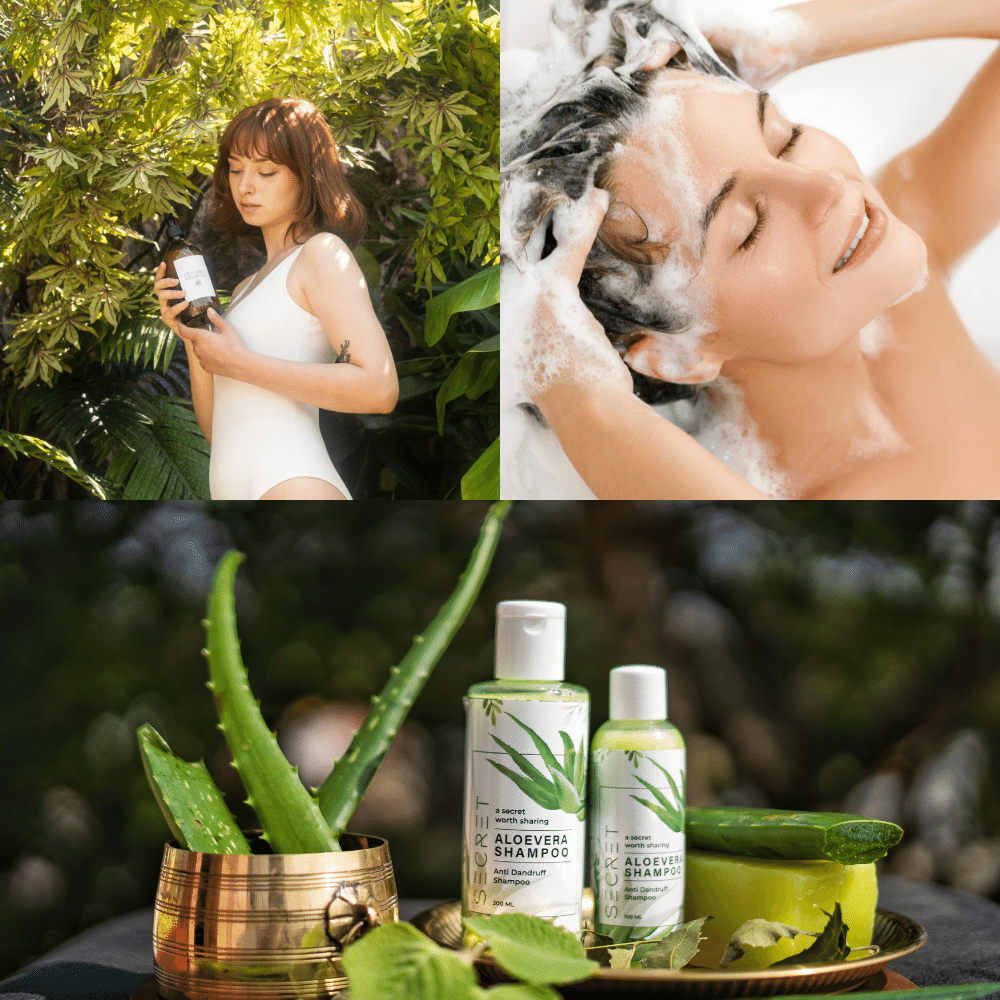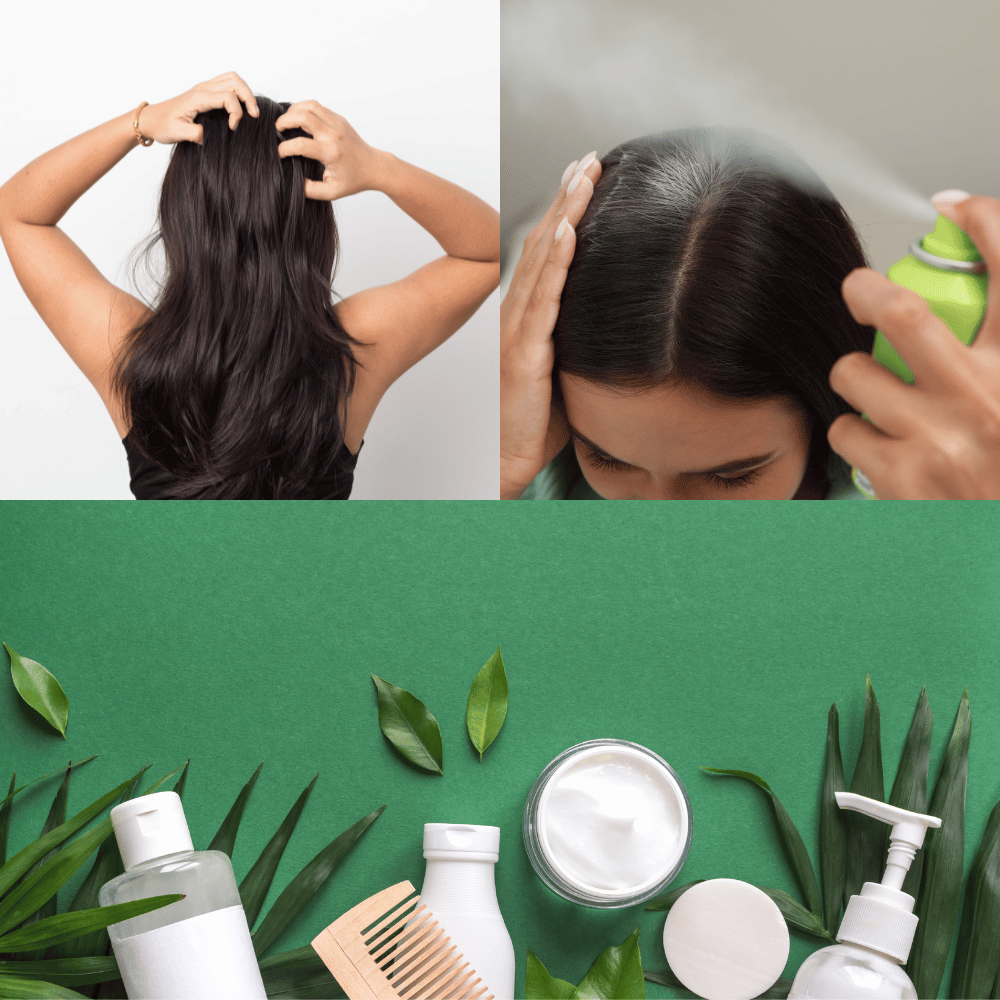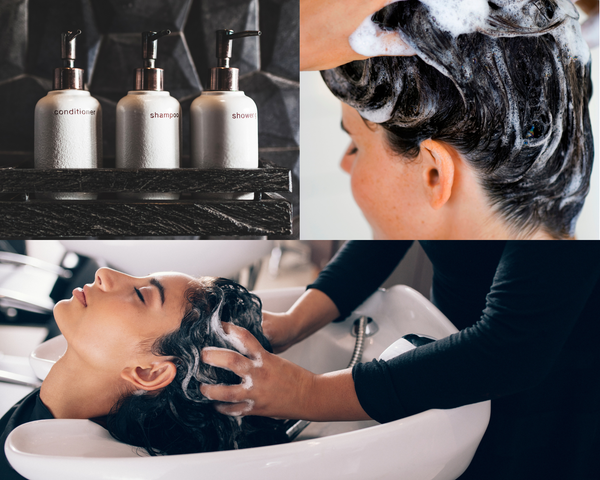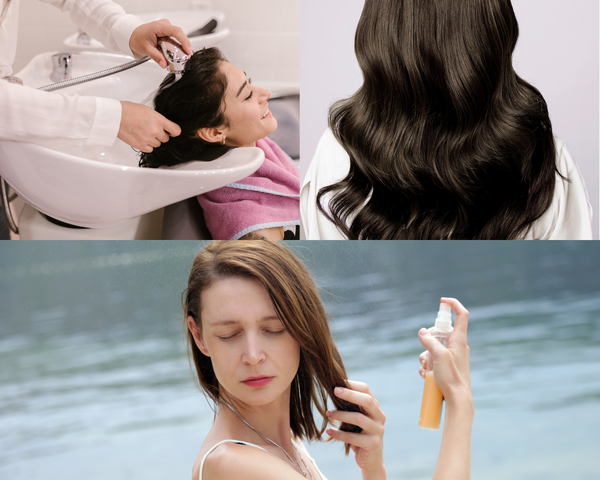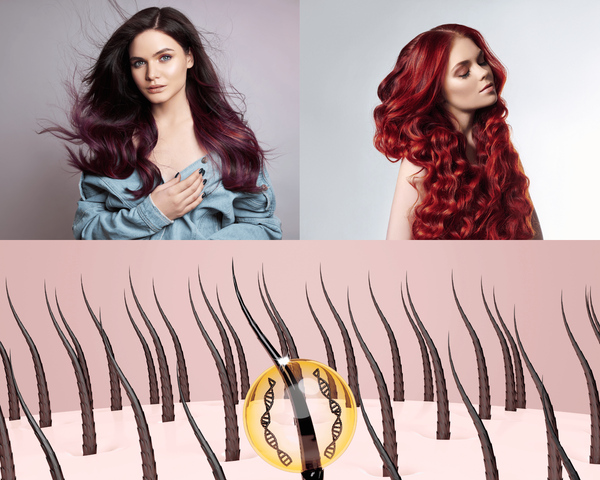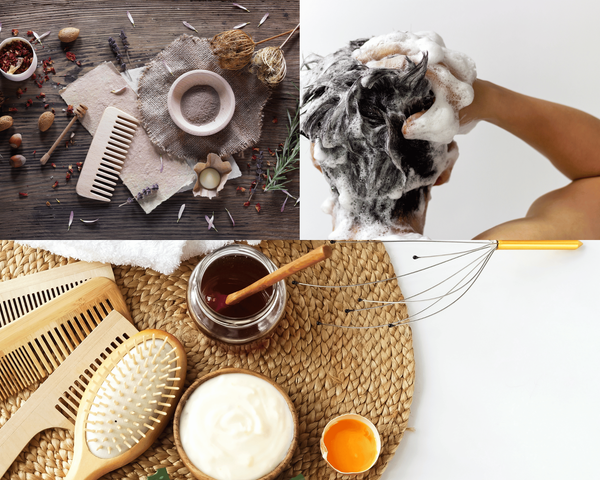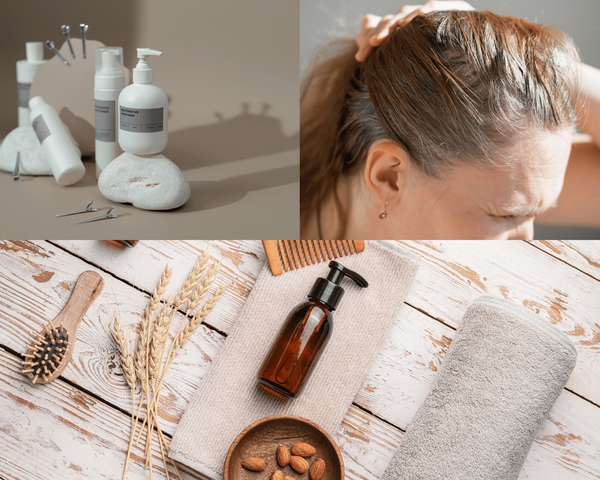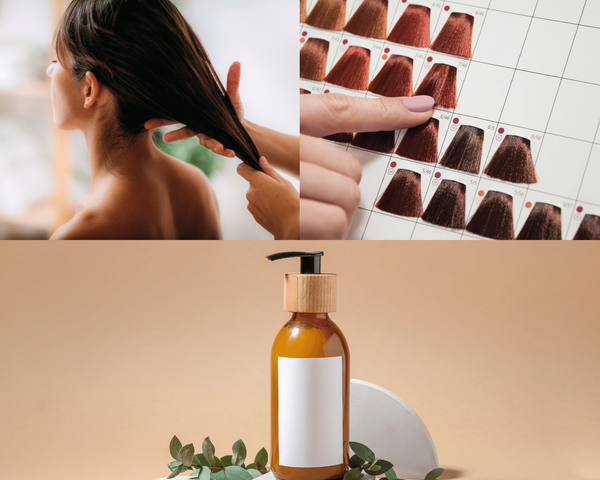Your scalp is a living extension of your skin that requires care and attention. It produces sebum, a natural oil that keeps your scalp moisturized and protects your hair. However, when your scalp produces too much sebum, it can lead to an oily scalp. Meanwhile, the ends of your hair, being the oldest and farthest from the scalp's nourishing oils, can become dry and brittle.
Key Takeaways:
- Discover the reasons behind an oily scalp paired with dry ends and learn how to manage this common hair concern.
- Understand the importance of scalp health for managing oily scalp and dry ends.
- Explore practical tips and treatments to nourish your scalp for healthy hair.
Hair can be as complex as it is beautiful, and sometimes, it throws us a curveball like an oily scalp with dry ends. If you're struggling with this hair conundrum, you're not alone. Let's dive into the reasons behind this imbalance and how you can restore harmony to your hair.
The Science Behind Your Scalp and Hair
Your scalp is a living extension of your skin that requires care and attention. It produces sebum, a natural oil that keeps your scalp moisturized and protects your hair. However, when your scalp produces too much sebum, it can lead to an oily scalp. Meanwhile, the ends of your hair, being the oldest and farthest from the scalp's nourishing oils, can become dry and brittle.
Hormonal Fluctuations and Your Hair
Hormones play a significant role in sebum production. Androgens, in particular, can increase sebum production, leading to an oily scalp. On the flip side, if your hair care routine isn't providing enough moisture to the ends, they can dry out, creating a contrast between your scalp and hair tips.
The Impact of Hair Care Practices wash oily hair
Over-washing your hair can strip it of its natural oils, prompting your scalp to produce even more sebum in response. Conversely, under-washing can lead to oil build-up on the scalp. Using heat styling tools without proper protection can also sap moisture from your ends, exacerbating dryness.
The Role of Hair Products oily hair
The hair products you choose can either help balance your scalp and hair or contribute to the problem. Heavy conditioners and oils may be too much for your scalp, while light, volumizing products might not provide enough hydration for your ends.
Importance of Scalp Health for Managing Oily Scalp and Dry Ends
Maintaining a healthy scalp is crucial for managing an oily scalp and dry ends. A balanced scalp environment helps regulate sebum production, oily hair bumble, preventing excess oiliness at the roots while ensuring that the ends of your hair receive the moisture they need.
Choosing the Right Shampoo apple cider vinegar
Selecting a shampoo that targets an oily scalp without drying out your ends is essential. Look for products that clarify and remove excess oil from the scalp while still being gentle enough to preserve the natural moisture of your hair.
Conditioning: A Delicate Balance best shampoo for oily scalp health and dry ends
Conditioning is a balancing act when dealing with an oily scalp and dry ends. Focus on applying conditioner to the mid-lengths and ends of your hair, avoiding the scalp to prevent additional oiliness.
The Benefits of Regular Trimming
Regular trims are a simple yet effective way to keep your ends healthy. By removing split ends, you prevent further damage and breakage, hair health, fine hair, dead skin cells which can make your ends appear even drier.
Hydration and Nutrition for Your Hair
Hydrating treatments and hair masks can provide the extra moisture your dry ends crave. Look for ingredients like hyaluronic acid and natural oils that can deeply nourish without weighing down your roots.
Scalp Treatments to Regulate Oil Production
Scalp treatments that regulate oil production can be a game-changer. Products containing ingredients like tea tree oil or salicylic acid can help balance sebum levels and maintain a healthy scalp.
Lifestyle Factors Affecting Your Hair
Your diet and stress levels can impact your hair's health. Eating a balanced diet rich in vitamins and minerals supports healthy hair growth, oily roots, redken hair cleansing cream, while managing stress can reduce hormone fluctuations that affect sebum production.
The Role of Hair Brushes and Combs
Using the right hairbrush or comb can help distribute your scalp's natural oils to the ends of your hair. Boar bristle brushes are particularly effective for this purpose.
Protecting Your Hair from Environmental Damage
Environmental factors like sun exposure and pollution can damage your hair. Protect your scalp and ends by wearing hats, jojoba oil, hair growth, using UV-protectant hair products, and minimizing exposure to harsh elements.
Professional Treatments for Balanced Hair
Sometimes, professional treatments are the best course of action. Salons offer services like scalp detoxes and deep conditioning treatments that can address an oily scalp and dry ends.
Summary
An oily scalp with dry ends is a common hair issue that arises from a combination of factors, including hormonal changes, hair care practices, greasy hair, clarifying shampoo, and the products you use. By understanding the importance of scalp health for managing oily scalp and dry ends, you can take steps to nourish your scalp for healthy hair. Regular trims, proper shampoo and conditioning, scalp treatments, and protecting your hair from environmental damage are all part of a comprehensive approach to achieving balanced, healthy hair.
FAQ Section
Q: Can I use the same shampoo for my oily scalp and dry ends?
A: Yes, but choose a shampoo designed to clarify the scalp while still being gentle on the ends. Look for products that specifically target combination hair types.
Q: How often should I trim my hair to prevent dry ends excess oil?
A: It's generally recommended to trim your hair every 6-8 weeks to keep your ends healthy and prevent split ends from worsening.
Q: Are there any natural remedies for balancing an oily scalp and dry ends?
A: Yes, natural remedies like aloe vera gel for the scalp and coconut oil for the ends can help balance your hair. However, it's essential to use these treatments correctly to avoid exacerbating the issue.
